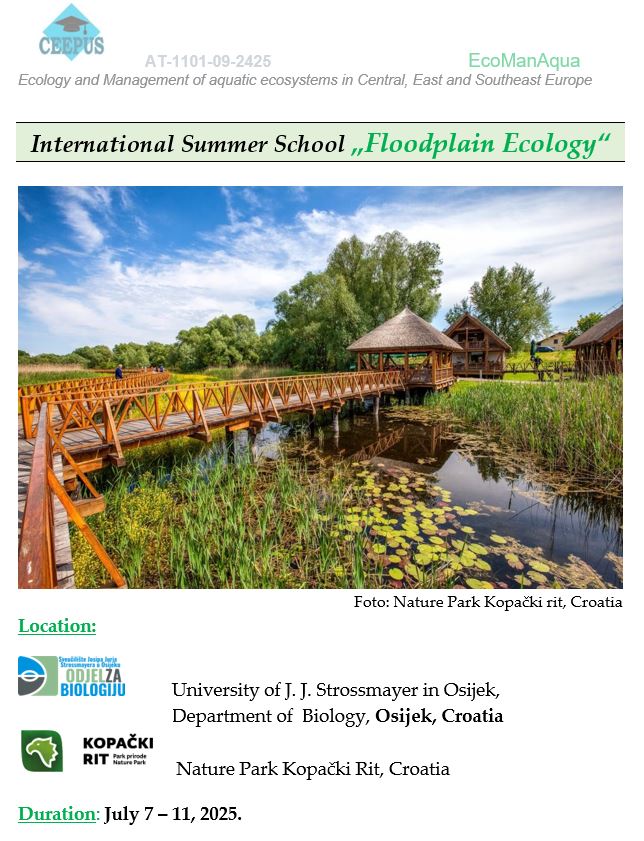Aims and Scopes
The Summer School will be designed to introduce the importance of wetlands and floodplain areas in the conservation of biodiversity in the Danube River Basin, from biodiversity theory to conservation frameworks. Students will learn practical skills for biodiversity fieldwork, including sampling design and monitoring. The aim is to contribute to the durable integration and spread of excellence within and beyond all institutions of the CEEPUS network EcoManAqua.
Course contents
The course will involve lectures, session on case studies and field sessions, in roughly equal proportions.
Lectures will focus on the understanding of the longitudinal and lateral river-floodplain continuum; spatial scales in biodiversity in river-floodplain systems; floodplain services and influence on biodiversity; methods for evaluation of wetlands and floodplain areas focusing on the biological indicators; restoration potential for floodplains in the Danube River Basin in the context of biodiversity protection.
Session on case studies – national parks along the Danube River from Austria till the Danube Delta (Romania) – will be presented by practitioners in the floodplain restoration projects.
Field Sessions will introduce students to a range of different field sampling techniques and associated data treatment. In this session, the participants will do small exercises using the basic field census techniques for different biotic components in wetlands and floodplains (algae, macrophytes, invertebrates, fishes, birds). Student teams will have to work independently in the field and in the laboratory, and will be expected to present their results as scientific presentations at the end of the course.
Eligibility
- Students
Open to graduate and doctoral students from the network partners. Applications will be confirmed/financed with 5 daily allowances for 10 students and 2 doctoral students.
Credits: the summer school will be worth 3 ECTS.
- Teachers
Open for the teachers from the institutions of the CEEPUS network EcoManAqua.







